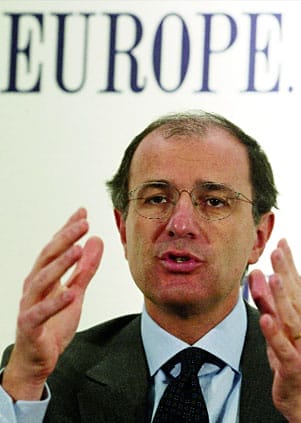 In 1998, when Corrado Passera was chosen to lead the Italian postal service, the task seemed impossible. There was only two months worth of cash left in the system. Postage rates were expensive, and the average time it took a domestic letter to be delivered was an amazingly slow five days. There was alleged corruption by suppliers and workers alike. Within months, Passera had settled critics.
In 1998, when Corrado Passera was chosen to lead the Italian postal service, the task seemed impossible. There was only two months worth of cash left in the system. Postage rates were expensive, and the average time it took a domestic letter to be delivered was an amazingly slow five days. There was alleged corruption by suppliers and workers alike. Within months, Passera had settled critics.
He dropped the price of priority mail drastically—from 2.07 Euros to 67 cents—and got overnight delivery up to a credible 80 percent rate. He secured financing from the government to computerize its 1,400 branches and at the same time reduce the post office debt. He even instituted something completely unknown in Italian business—the single-file customer service line.
He left the postal service in 2002 and took on the chief executive officer’s job at Banca Intesa, Italy’s largest by assets. Its problems were similar—inefficiency, taint from banking scandals, haphazard government regulation, and the threat of takeover by foreign banking conglomerates.
Beginning his career at McKinsey, Passera had become the go-to leader for Italy’s top companies, including CIR, a holding firm; and Modadori Group and L’Espresso-Repubblica, two publishers; and Credito Romagnolo, one of Italy’s most profitable banks. As Managing Director and General Manager at Banco Ambroveneto, Passera led its merger with Cariplo, the world’s largest savings bank, resulting in Banca Intesa in 1998.
He had learned throughout his career that the best way to turn around a company was to enjoin everyone in the process. For example, Passera knew that job cuts were needed at the postal service, but to get union buy-in, he told leaders that management would take their share in both cuts and efficiencies. 17,000 jobs were cut by 2001, and along the way, the Italian mail system became one of the most dependable in Europe. Similarly, on his first few months on the job at Banca Intesa, Passera cut staff, consolidated management, and made the bank profitable. Passera is a member of Wharton’s Executive Board for Europe, Africa, and the Middle East.

























